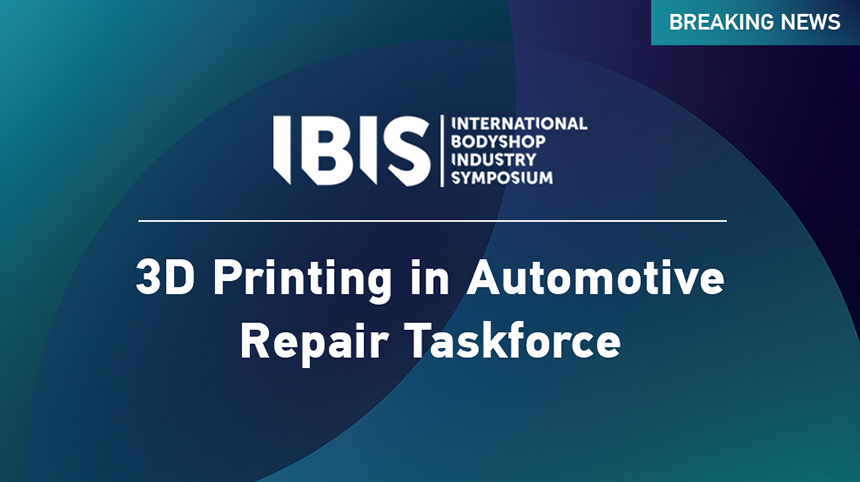3D Printing in Automotive Repair Taskforce launched at IBIS USA

IBIS Worldwide, in collaboration with its supporting partners, announced at IBIS USA 2023 in Nashville the formation of a global taskforce dedicated to exploring the use of 3D printing in automotive repair and the collision repair industry.
With IBIS as the platform for driving the project, Harold Sears has been named as the taskforce lead. Sears has more than 30 years of 3D printing and additive manufacturing experience as a consultant, and for two decades drove Ford’s revolutionary 3D Printing Division.
The taskforce will work with industry associations and regulators to ensure that any new technology and practices meet OEM safety and regulatory requirements. Training will form another key element as the taskforce explores partnerships with automotive based training bodies who will focus on delivering training for the current workforce in preparation for the 3D printing evolution.
Mario Dimovski from Boyd Group will represent the “collision and auto repair” industry based on his rich history of innovation and collaborative work in 3D printing over the past decade. He will join other taskforce experts from supporting fields related to 3D printing, OEMs, additive material, recycling, and engineering.
The goal of the taskforce is to identify opportunities for using 3D printing to improve the efficiency and effectiveness of automotive repair. This could include using 3D printing to create replacement parts, tools, and other components, as well as using the technology to improve the design and manufacture of existing parts.
“As automotive professionals, we are always looking for new and innovative ways to improve our services and better serve our industry,” Sears said. “We believe that 3D printing technology has the potential to revolutionise the way we approach parts supply and repair work, and we are excited to explore the possibilities further.”
The taskforce will conduct extensive research into the use of 3D printing in automotive and collision repair, looking at factors such as cost-effectiveness, speed of production, quality control, and safety considerations.
Jason Moseley, CEO of IBIS and a member of the taskforce, said: “IBIS is very excited to be able to support such an innovative initiative and help educate and facilitate the introduction of 3D printing in the collision and auto repair industry. I also look forward to taking part in the taskforce and collaborating with the other subject matter experts on this exciting venture.”
The taskforce will also explore the potential for 3D printing to create custom parts and components that are not currently available through traditional manufacturing methods.
“The automotive industry is constantly evolving, and we need to keep up with the latest technology to remain competitive,” Sears added. “By exploring the use of 3D printing in repair work, we can find new and innovative ways to improve services and offer more efficient and cost-effective solutions to parts supply and collision repair businesses.”
With 3D printing technology rapidly advancing, the taskforce is confident that it can identify new and innovative ways to use this technology to improve repair services and better serve customers.








